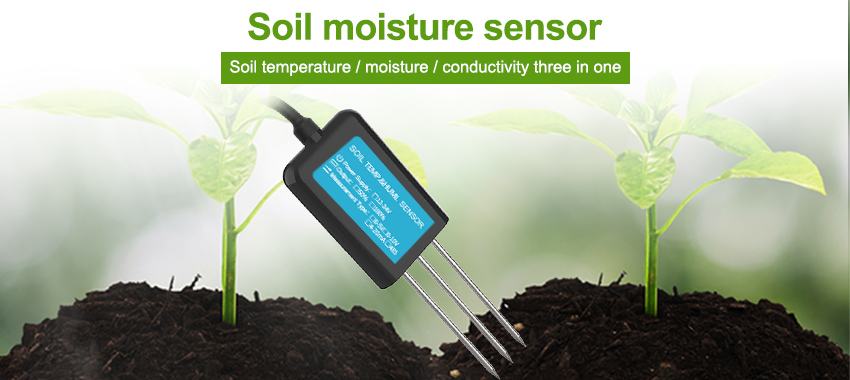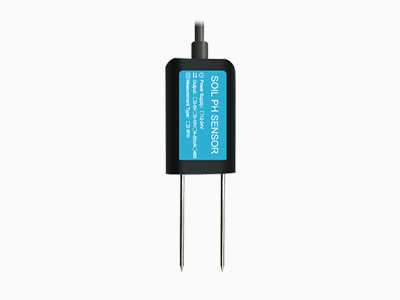Soil health is fundamental to sustainable agriculture, as it directly impacts crop productivity, environmental sustainability, and long-term land viability. In recent years, the development of soil sensors has revolutionized farming practices by providing valuable insights into soil conditions and enabling data-driven decision-making. This article explores the significance of soil sensors in optimizing soil health and highlights their role in promoting sustainable and efficient farming practices.

Importance of Soil Health in Sustainable Agriculture:
Soil health encompasses various aspects, including fertility, structure, moisture content, and biological activity. Healthy soil is essential for supporting plant growth, maintaining nutrient balance, and preserving ecosystem integrity. Sustainable agriculture relies on maintaining and enhancing soil health for long-term productivity and environmental stewardship.
Soil Sensors:
Soil sensors are advanced devices designed to measure and monitor a wide range of soil parameters, such as moisture levels, temperature, electrical conductivity, pH, nutrient content, and microbial activity. These sensors provide real-time data, allowing farmers to assess soil conditions accurately and make informed decisions regarding irrigation, fertilization, and overall land management.
Applications and Benefits of Soil Sensors:
a. Irrigation Management: Soil sensors play a crucial role in optimizing irrigation practices by providing accurate data on soil moisture levels. This information enables farmers to implement targeted irrigation strategies, minimizing water wastage, reducing energy consumption, and preventing soil waterlogging or drought stress in crops.
b. Nutrient Management:
Monitoring soil nutrient levels is vital for ensuring optimal plant nutrition and mitigating the risk of nutrient leaching. Soil sensors help farmers assess soil fertility and adjust fertilizer application based on actual soil conditions, promoting efficient nutrient use and reducing environmental impact.
c. Soil Structure and Compaction:
Soil sensors can assess soil compaction and structural stability, which are essential for root development and water infiltration. By detecting potential issues early on, farmers can take preventive measures to improve soil structure and reduce compaction, enhancing overall soil health and crop resilience.
d. Disease and Pest Management:
Soil sensors contribute to early detection of soil-borne diseases and pests by monitoring microbial activity and soil conditions. This allows for timely interventions, such as implementing crop rotations, selecting resistant varieties, or adjusting planting schedules to minimize disease pressure and pest infestations.
e. Environmental Impact:
Sustainable farming practices aim to minimize environmental impact while maximizing productivity. Soil sensors enable precise management of inputs, such as water and fertilizers, reducing runoff, leaching, and excessive resource usage. This approach supports environmental sustainability and conservation of natural resources.
Integration with Precision Agriculture:
Soil sensors can be integrated into precision agriculture systems, which combine data from multiple sources, including satellite imagery, weather forecasts, and equipment sensors. This integration enables farmers to create detailed soil maps, tailor management practices to specific soil variability, and optimize crop production while minimizing environmental impact.

Future Developments and Challenges: The field of soil sensing technology is continually evolving, with ongoing research focusing on improving sensor accuracy, durability, and affordability. Future developments may include the integration of advanced data analytics and artificial intelligence to interpret sensor data and provide predictive insights for soil management. However, challenges such as sensor calibration, standardization, and compatibility with different soil types need to be addressed to ensure widespread adoption and usability.
Conclusion: Soil sensors play a pivotal role in sustainable farming practices by providing real-time data on soil conditions and enabling precision management strategies. These devices contribute to the optimization of soil health, efficient resource utilization, and environmental sustainability in agriculture. By embracing soil sensors and integrating them into comprehensive farming systems, we can promote sustainable land management, enhance crop productivity, and preserve the long-term viability of agricultural landscapes. Leveraging the power of soil sensors is essential for fostering resilient and eco-friendly farming practices in the pursuit of a sustainable future.
